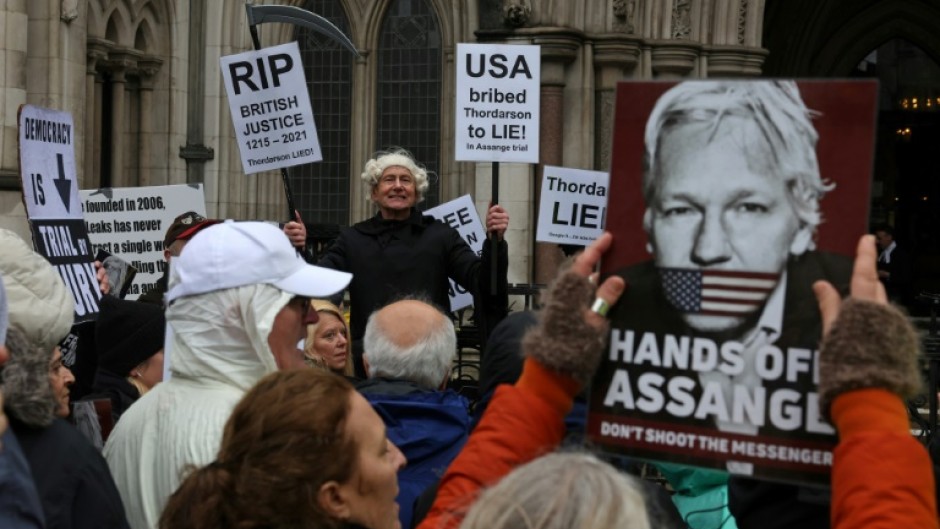WikiLeaks founder Julian Assange will find out Tuesday whether he can mount a final UK legal bid to challenge his extradition from Britain to the United States, court listings showed.
Assange, 52, is facing trial on espionage charges, and a potentially lengthy jail term, after Wikileaks published classified US documents relating to the wars in Afghanistan and Iraq.
Two senior High Court judges in London last month heard two days of evidence from his lawyers and those for the US government over whether to grant him a fresh appeal against extradition.
Assange was absent from court on both days and did not follow the proceedings via video due to illness, his lawyer said at the time.
Washington indicted Australian citizen Assange, who created WikiLeaks in 2006, multiple times between 2018 and 2020 over its publication of hundreds of thousands of secret military and diplomatic files on the US-led wars in Iraq and Afghanistan.
He has since waged a half-decade battle against being sent to the United States but has lost successive rulings.
Tuesday's judgment is expected at 1030 GMT. If it again goes against him, he could be extradited within weeks.
During the two days of legal argument in February, lawyers for Assange insisted the US charges were "political" and that he was being prosecuted "for engaging in ordinary journalistic practice of obtaining and publishing classified information".
They also argued that the decades-long prison sentence he faces was "disproportionate", accusing Washington of acting in "bad faith" and contravening its extradition treaty with Britain.
But lawyers for the US government urged judges Victoria Sharp and Jeremy Johnson to reject his arguments on various legal grounds.
US President Joe Biden has faced domestic and international pressure to drop the 18-count indictment against Assange in a Virginia federal court, filed under his predecessor Donald Trump.
Major media organisations, press freedom advocates and the Australian parliament have all denounced the prosecution under the 1917 Espionage Act, which has never been used over the publishing of classified information.

